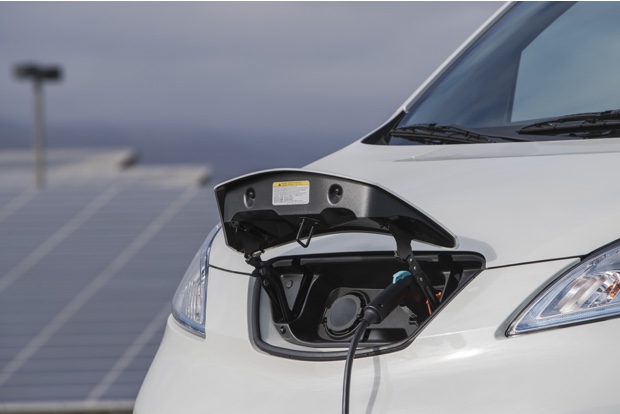2 August 2019
Fleet operators key to electric vehicle tipping point in the UK, says new report
Fleet operators are key to driving rapid adoption of electric vehicles in the UK and should be given the tools, information and incentives required to switch from petrol and diesel models.

What is the new report?
A government-funded report that looks at new electric vehicle (EV) trends as well as the potential challenges associated with increasing the number of EVs on the roads.
How do the report’s findings affect fleets?
The first of six recommendations in the report state that fleet operators could have a large impact on early EV adoption. As a result of this, fleet operators should be encouraged and provided with the right resources to help switch their fleets to EVs.
That's the headline claim in a new report, 'Electric Vehicles: Innovation Towards an Excellent User Experience' , from Digital Catapult and Connected Places Catapult on behalf of Innovate UK, the UK's innovation agency, a non-departmental public body funded by a grant-in-aid from the Government.
The report comes just two weeks after the Government published new company car benefit-in-kind tax rates for the three years 2020/21 to 2022/23 designed to accelerate the shift to zero emission cars. All zero emission models are to be 0% rated in 2020/21 - slashed from 16% in 2019/20 - before rising to 1% in 2021/22 and 2% in 2022/23. See: https://www.activacontracts.co.uk/news/company-car-tax-rates-2020-21-to-2022-23.html
Fleet managers that switch their vehicles to plug-in quickly will create a significant early impact on reducing air pollution and greenhouse gas emissions, demand is generated for the charging infrastructure and data can be captured to help drive the private vehicle market as the Government targets 2040 as the date for the sale of all new cars to be zero emission, according to the report.
It makes clear that vehicle battery range is increasing and vehicle costs reducing providing an opportunity for new business models that would aim to reduce whole life costs as motor manufacturers work towards price parity with petrol and diesel models.
The report also highlights how a lack of co-ordinated and standardised electric vehicle data is inhibiting the delivery of 'excellent user experiences', delivery of public and private charging infrastructure and demand forecasting for the power grid.
Providing insights and recommendations into aspects such as user experience, data and standards, the report suggests that the Internet of Things, vehicle to infrastructure communications, blockchain, artificial intelligence and immersive technologies such as augmented reality could all have a part to play in closing this gap.
Alan Nettleton, senior technologist at the Connected Place Catapult said: "Electrification of our road vehicle fleet will be vital in addressing challenges such as air pollution and greenhouse gas emissions, along with measures to encourage walking, cycling and public transport.
"We need to think carefully around how to make electric vehicles an attractive prospect to both individuals and fleet operators. This includes making the experience easy and intuitive, whilst at the same time capitalising on the great driving experience electric vehicles offer."
Beyond fleet take-up, the report also goes further to understand what anxieties and user needs continue to be unmet with respect to electric vehicle experiences.
Mr Nettleton said: "The user scenarios we explored in the research present a vision of a fully connected digitally-enabled electric vehicle world, with rich communications between all stakeholders in a seamless, secure and trusted manner.
"However, in order to achieve this, we need to keep innovating and finding new ways to give relevant information to potential electric vehicle users.
"Areas such as integrating charging information into sat navs, mobile charging solutions to help manage demand, vehicle to grid power solutions and service solutions which combine electric vehicle use with other types of transport should all be explored, alongside vital technological developments in battery capacity and charging speed. We need to start planning now for what we will need when a large proportion of vehicles on the road will be electric."
The full report is available at: https://s3-eu-west-1.amazonaws.com/media.cp.catapult/wp-content/uploads/2019/07/17145222/00897_Electric-Vehicles-Report_V4_reduced.pdf


